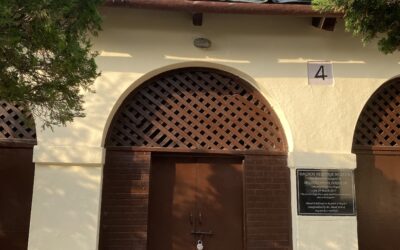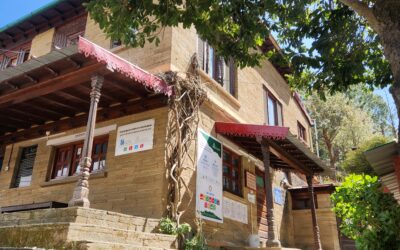One of my biggest challenges until now, in the last 6 months of fellowship, has been the language barrier between the community and me. I work in the rural areas of Odisha near Cuttack and Kendrapara, where Oriya is the major spoken language. I had wanted to write about the difficulty since day one but I found that pretty much everyone was struggling with the language in their work area. I just knew that I had to find out a way on my own.
The common perception is that Oriya and Bengali are similar. Some of my friends thought that this would give me an advantage because I am a Bengali. It is understandable to think that the languages are similar, specially because the culture overlaps, as does the love for fish. The close proximity of West Bengal and Orissa adds up to it, as the bus connectivity between the two states is great. But, my first interaction with the community members broke this perception and my hope of it being easy for me, shattered in pieces.
Yes, some words are similar in spelling as well as in the pronunciation. There is a general shift in the way every word sounds with an “o” in it. Also, if you have an Oriya or Bengali accent, it’s difficult to say if it’s “s”or “sh”, and “b” or “v”. Two things were evident – being a Bengali didn’t help, and my accent was definitely not like a Bengali’s because I was born and brought up in Madhya Pradesh. This is what I first realized while I was teaching Hindi to a few kids and teachers during my initial days here. 90% of the words they spoke, were new to me.
The language barrier was also quite visible in the people I interacted with. My Hindi conversations were now limited to telephone calls. Since I had never lived out of Madhya Pradesh, I never realized how important Hindi was for me, to feel at home.
At the end of the third month, I visited Tendakura village of Kendrapara district, where Muslim Population lives in majority. The manager who overlooks our learning center here, thought that it was a good idea for me to be there, because of my fluency in Hindi as most people spoke the language there. As compared to other villages, my interaction here was much more personal in the next two days when I participated in a door to door campaign, reached out to families and spent some time with parents to promote Thinkzone, as an opportunity for them to educate their kids.
It was amazing to see how this one community with a grasp in Urdu and Hindi, were living even though they were surrounded by a huge population of Oriya speaking people who didn’t know Hindi at all. How did they do it? Who brought the languages here? How did they pass it on? I had so many questions and in spite of not being able to get deep into their history, I was overwhelmed and inspired thinking that maybe, I could survive as well.
On one of the days, it was the interaction with kids in the region that actually moved me. Since three months, I had been trying my luck to interact with kids at learning centers. My efforts were all in vain since none of them knew Hindi at all, and I was still trying to grasp some Oriya words. While the teachers and I could talk through digital mediums like TV and YouTube, it was a dead end with kids. My work started moving to tasks where I didn’t have to interact with kids but be more with the teachers. To not lose touch, I would click students’ pictures or take tests. I was disappointed but didn’t give up.
At Tendakura, the first few words a child spoke to me, were in Urdu, or rather, a mixture of Hindi and Urdu. I almost shrieked out of joy because I could understand it completely. All of them could understand what I said and they would respond back in the same language. It was suddenly so much easier, and joyful.
Urdu played a role out of nowhere. There certainly is a large number of Muslim people living all over Odisha and Urdu is quite prevalent everywhere. But to me, it was a language which never felt so close earlier. I had always regarded it as difficult because I couldn’t detach it from its complicated looking script. Whenever I saw Urdu written anywhere, I thought I would never be able to learn it. Today, it has become my aid in this difficult journey. Urdu felt like home at a time when it was most required.




0 Comments